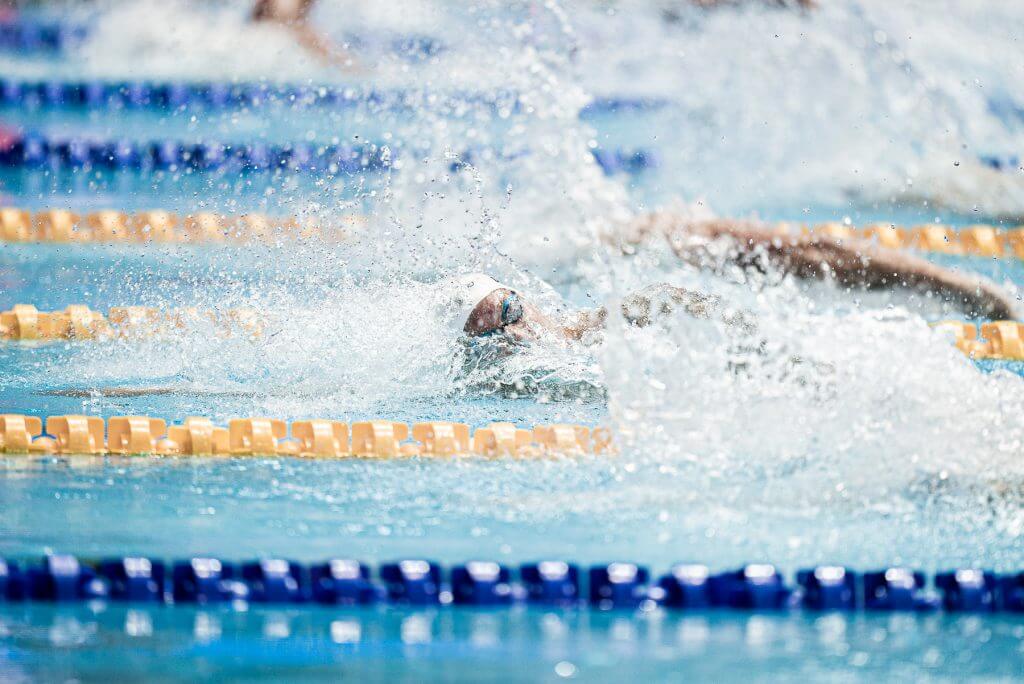Tokyo Vision: Caeleb Dressel Looking to Cap Games with 50 Free Gold

Tokyo Vision: Caeleb Dressel Looking to Cap Games with 50 Free Gold
Had the COVID-19 pandemic not shaken the world, the 2020 Olympic Games in Tokyo would be unfolding right now, titles and podium finishes earned by the finest athletes from around the world. Instead, we are in a competition lull and hopeful that the Games will be held next summer, with COVID-19 neutralized.
As we reach the nine days over which the swimming competition of a delayed Olympiad would have taken place, Swimming World is taking a glimpse at what might have unfolded this summer, had the Olympics not been postponed. Following the official schedule, we offer our virtual fields of eight finalists for each event and take a brief look at how the racing might have panned out until a few strokes away from decision and a result that will not be known until July/August 2021.
Event: Men’s 50 freestyle
World Record: Cesar Cielo (2009) – 20.91
Historical Note #1: The fun of the 50 free hasn’t always guaranteed its inclusion in the Olympic program. The first Olympic medal in the event was won in 1904 by Hungary’s Zoltan Halmay, then the event disappeared from the program until 1988.
Historical Note #2: Anthony Ervin’s win in 2016 made him the oldest male Olympic swimming champion at age 35. That gold came 16 years after he first won the event, in a tie with fellow American Gary Hall Jr., in 2000.
Virtual Vision
The Finalists (Listed Alphabetically)
- Caeleb Dressel – USA
- Bruno Fratus – Brazil
- Kristian Gkolomeev – Greece
- Florent Manaudou – France
- Cameron McEvoy – Australia
- Vladimir Morozov – Russia
- Ben Proud – Great Britain
- Shinri Shioura – Japan
The Race
The pathway to chaos started the morning before, when Caeleb Dressel eked into the final with the third-slowest time, part of a daunting triple of the 50 free semifinals, the 100 butterfly final and the mixed medley relay final. It’s job done, but in the splash and dash, it put him out of the center of the pool, definitely out of view, but possibly in the wash of the other swimmers. Dressel, one of the fastest starters in the sport, entered the final knowing he’d need to summon that skill once more in what was shaping up as a historic Games for the sprinter.
The top seed in finals belonged to Russian Vladimir Morozov, with Britain’s Benjamin Proud not far behind. Nathan Adrian, who grabbed the second American spot behind Dressel, just missed out on the final eight, at the expense of Japan’s Shinri Shioura. The old guard remains firm, however: Bruno Fratus, who tied for silver at the 2019 World Championships with Greece’s Kristian Gkolomeev, drew a middle lane for the final. Next to him, riding the success of the ISL season, was Florent Manaudou, the only medalist from the 2016 Games to be defending his hardware in Tokyo.
In the final, Dressel got his usual strong jump and edged out just ahead of the field by an arm’s length. Gkolomeev and his 6-foot-8 frame were next. Though slightly back, Morozov found his cruising speed quickly to get into contact. As the flags loomed and the froth grew, no one is out of the medal picture. The crowd even harbored hopes that Shioura, on the outside next to Dressel, could ride the draft and spring a surprise from the outside. Manaudou and Fratus seemed to be jockeying back and forth with every stroke.
As the race approached the wall, two questions resounded: Could the field catch Dressel? And could Dressel or someone driven by the chase of him catch Cesar Cielo’s world record?



